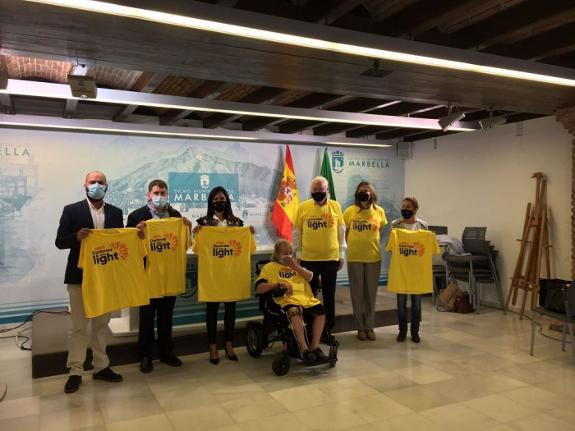

Sections
Highlight

JOSÉ MARÍA MARTÍN
Friday, 17 September 2021, 15:04
Compartir
In 2019 there were 3,671 suicides in Spain, according to the National Institute of Statistics, and this was a higher number than in 2018. Due to the pandemic, the figures for 2020 and 2021 are expected to rise even further, say specialists such as the Afesol Association for people on the Costa del Sol who suffer from mental illness, and their relatives.
Sources at the association, which has centres in Marbella and San Pedro Alcántara and will soon have another in Estepona, explain that the onset of the coronavirus pandemic, the lockdown and subsequent consequences have notably increased the number of suicides, and Afesol has increased its number of workers as a result of this.
"We are overwhelmed," says Conchi Cuevas, the president of the association. She says that "until now, the vast majority of cases of suicide were associated with people with mental illness. With the arrival of the pandemic, there are no antecedents and it has to do with people's fear, the loss of loved ones or jobs, or the general insecurity that comes from living with the virus".
Suicides and attempted suicides have multiplied exponentially in the area in which Afesol works. They are particularly concerned about the number of cases in Marbella.
"The highest numbers of cases on the Costa del Sol have been here, and in San Pedro Alcántara, because this is an area with a large population. We began to increase our staff last year and we will have to go on doing that until the end of this year. We now have another psychologist working with us, as well as other professionals," says Concha. There are currently seven specialists working in Marbella and San Pedro.
When a new case occurs, the association immediately swings into action. First, with a psychological team to support the user and also their relatives. "We work with the families on a series of guidelines to help them deal with the situation," explains Concha Cuevas.
The relatives' role is essential, and if there is any sign of deterioration in a family member, it is they who advise specialist associations such as Afesol as well as the mental health professionals themselves.
Concha says the number of families who notice these symptoms in their loved ones is still low, and even fewer people need professional help before it is too late.
"In fact, most of the people we treat come to us after they have attempted to commit suicide, sometimes twice," she says.
Now, just after World Suicide Prevention Day, which was on 10 September, Afesol says that the taboos around talking clearly and calmly about the subject need to be overcome.
"It is important for our members and their families to see that there is darkness and we should not be afraid to talk about it, but also that there is light, which is reached through effort and work, but which, in the end, is reached", says Concha.
In this type of work, any help is more than welcome. Concha says that, luckily, Afesol receives quite a lot of support from institutions such as Marbella town hall, through the Social Rights department. She also stresses the support they have received from the international Pieta House association. "Their motto is: From darkness into the light. Together with them, we have been able to organise solidarity running events in different places on the Costa del Sol to give visibility to this problem," she says.
Publicidad
Publicidad
Publicidad
Publicidad
Reporta un error en esta noticia
Necesitas ser suscriptor para poder votar.